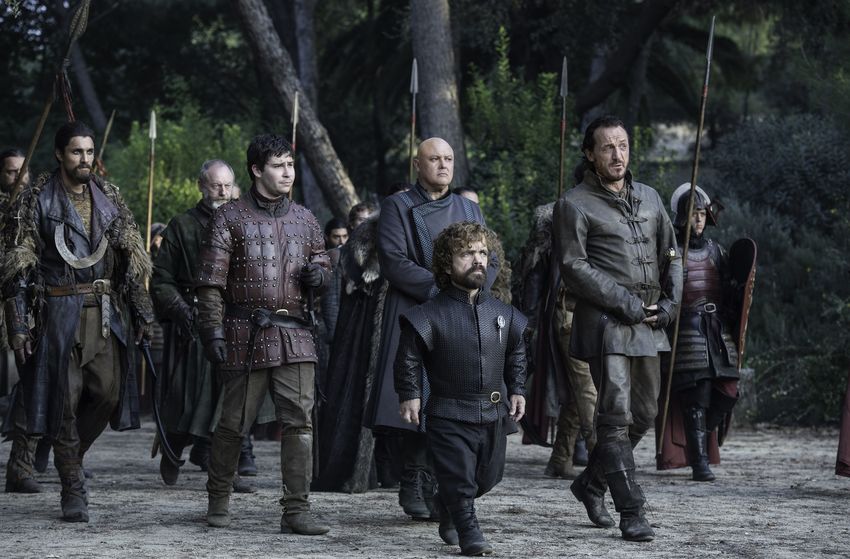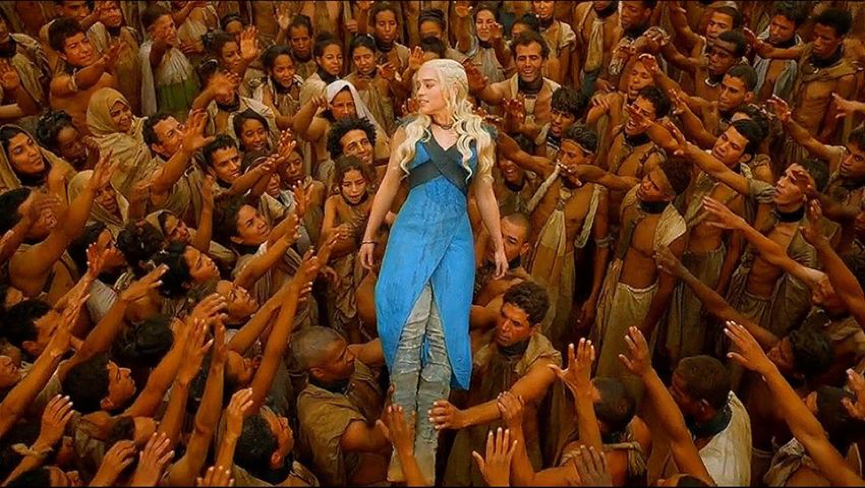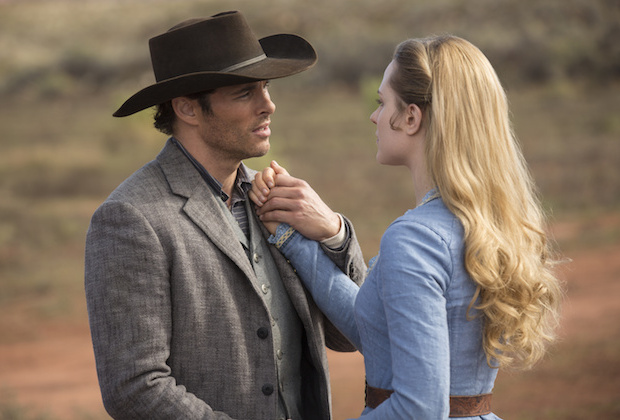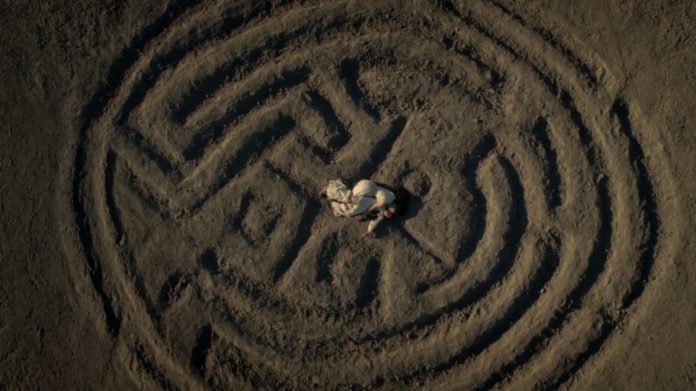With Game of Thrones ending next year, HBO hasn’t exactly been subtle about its attempts to make Westworld their hit series’ heir apparent in terms of popularity, and what better time to take stock of the show’s progress in that direction than with the finale of Season Two airing this Sunday?
It is tempting to approach Westworld’s success comparative to that of Game of Thrones from a statistical stand-point, but for this article, I’d like to take a less quantitative approach, and focus more on my experiences watching Westworld as a Game of Thrones fan. In 2016, when Westworld‘s first season premiered, we still didn’t know about HBO’s plans to make a GOT spin-off, or that Game of Thrones would enjoy a year long hiatus before returning for its final season in 2019, so the search for a quality replacement for the show felt fairly urgent. Many Game of Thrones fans, myself included, approached Westworld with an enthusiastically open mind, in large part because by that time critics were already suggesting that the show could serve as a worthy successor to the pop-culture giant that is Game of Thrones.
In a pedantic sense, the critics weren’t wrong— Westworld has clearly come from the same kitchen, and used many of the same ingredients as Game of Thrones. From the get-go, the series undeniably had all the markers of what makes Game of Thrones so successful—extravagant settings and effects, twisting storylines, complex characters, and of course a hearty dose of violence and nudity. While still having a distinct voice of its own, Westworld has so many technical and even thematic similarities to Game of Thrones, that it is difficult not to make comparisons, and HBO wants us to. Westworld‘s production and promotional budget is noticeably generous, and sleekly self assured in a way that outdoes the earlier seasons of Game of Thrones and not so subtly boasts HBO’s endorsement.

Game of Thrones invites you to master its intricacies, and rewards you the more you do, but Westworld demanded a similar commitment early on, and was rather ruthless to those who couldn’t keep up. Both Game of Thrones and Westworld are appreciated by audiences for their mysterious plot-lines and the theories that they allow viewers to formulate. In Game of Thrones, while the uncertainties and enigmas of the world of the show are certainly important aspects in its appeal, they are aspects—in Westworld they are the heart of the show. If Game of Thrones’ gimmick is that its characters are never safe from death, Westworld’s is that you never know what is going on. One is a gimmick that encourages us to keep coming back– the other is one that is easily off-putting.
Game of Thrones built up a mythos and a series of pressing questioning over a long period of time, questions we wanted answers to because we increasingly cared for the characters to which their answers were relevant. What did Lyanna whisper to Ned Stark? We wanted to know because we care about Jon Snow’s past and its implications for his life. There is a reason that more people were interested in the revelation regarding the origin of Hodor’s name than in the back-story of how the White Walkers were created.
In contrast, Westworld introduces hundreds of questions immediately, long before we have much investment in the characters or the world, and so we become invested in solving the show’s riddles, more just for the fun of it, than because we care about their answers’ implications.

I’ve spent a fairly large amount of time on and off-line over the years, researching Game of Thrones’ faux- histories, debating the meaning of prophesies and the motivations behind plots, and discussing my favorite characters, but I never felt that any of that was essential to my or anyone else’s enjoyment of the show. With Westworld, if I don’t spend enough time trawling through forum threads after each episode, I know I will miss something vital to my understanding of the show, and it often feels that the show was designed that way. Westworld’s heavy official online presence evidences that the show has been created to be a large and synergistic scavenger hunt. It is a show that asks you to become fanatical about it from day one, and there’s something rather rankling about that. My investment feels artificial, if not coerced.


In light of HBO’s increasing commitment to making a Game of Thrones spin-off (or two, or three), the discussion over what makes a good GOT replacement is more timely than ever. Westworld is without a doubt a skillfully written, expertly produced, and visually striking series, but for me, at least, it lacks the heart of Game of Thrones, which started off as a gamble in a world where fantasy was not exactly a mainstream television genre, and earned its popularity on its own merit. Westworld is a laudable show,and I am sure it will continue to enjoy a great deal of success, but ultimately, I don’t think it is the next Game of Thrones.
Can Westworld replace Westeros? We want to hear from you! Leave us a comment.




















![[Book Review] The Blade Itself (The First Law Trilogy) by Joe Abercrombie](https://bendthekneegot.com/wp-content/uploads/2018/01/1516047103_maxresdefault-218x150.jpg)

















